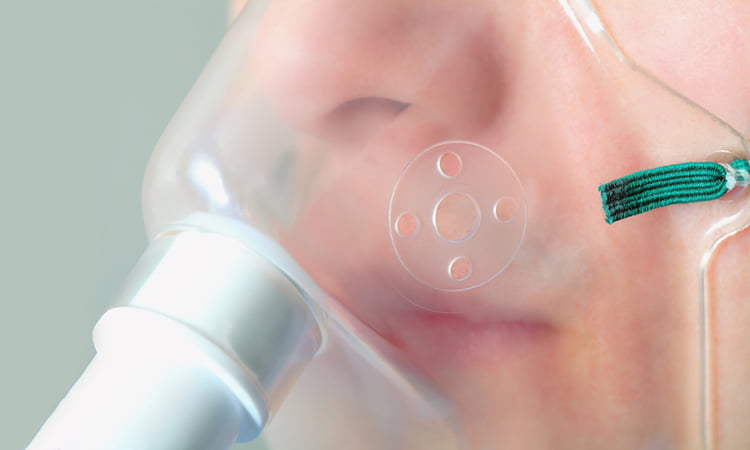SARS antiviral nitric oxide could be used to treat SARS-CoV-2
Posted: 5 October 2020 | Victoria Rees (Drug Target Review) | 1 comment
The nitric oxide treatment used during the 2003 SARS epidemic could be used as an antiviral against SARS-CoV-2, researchers say.


Researchers have found that an effective way of treating the 2003 severe acute respiratory syndrome (SARS) epidemic also works on SARS-CoV-2, the virus causing the COVID-19 pandemic, in the lab. The study was conducted at Uppsala University, Sweden.
The team say that the nitric oxide (NO) compound has antiviral properties and is produced by the body itself, so could be used to combat SARS-CoV-2.
“To our knowledge, NO is the only substance shown so far to have a direct effect on SARS-CoV-2,” said Professor Åke Lundkvist, who led the study.
NO is a compound produced naturally in the body; its functions include acting like a hormone in controlling various organs. It regulates, for example, tension in the blood vessels and blood flow between and within organs.
During the SARS epidemic of 2003, this therapy was tried out with success, as it decreased inflammation in patients’ lungs. Previous research showed that NO released from S-Nitroso-N-acetylpenicillamine (SNAP) proved to have a distinct antiviral effect.
The researchers have now investigated how SARS-CoV-2 reacts to the compound. In the new study, NO released from SNAP was shown to a clear antiviral effect on COVID-19 and have an effect that grew stronger as the dose was raised.
“Until we get a vaccine that works, our hope is that inhalation of NO might be an effective form of treatment. The dosage and timing of starting treatment probably play an important part in the outcome and now need to be explored as soon as possible,” Åke Lundkvist said.
The research group are now planning to proceed by investigating the antiviral effects of NO emitted in gas form on SARS-CoV-2. To do so, they will construct a model in the laboratory in order to safely simulate a conceivable form of therapy for patients.
The study on SARS-CoV-2 is published in Redox Biology.
Related topics
Biopharmaceuticals, Drug Development, Drug repurposing, Drug Targets, Research & Development, Targets, Therapeutics
Related conditions
Covid-19
Related organisations
Uppsala University
Related people
Professor Åke Lundkvist




Two promising studies on inhaled nitric oxide treatment for COVID-19 patients have already been published. “High concentations of nitric oxide inhalation therapy in pregnant patients with severe coronavirus disease 2019(COVID-19)” (Fakhr et al 2020) “Inhaled nitric oxide treatment in spontaneously breathing COVID-19 patients” (Parikh et al 2020)